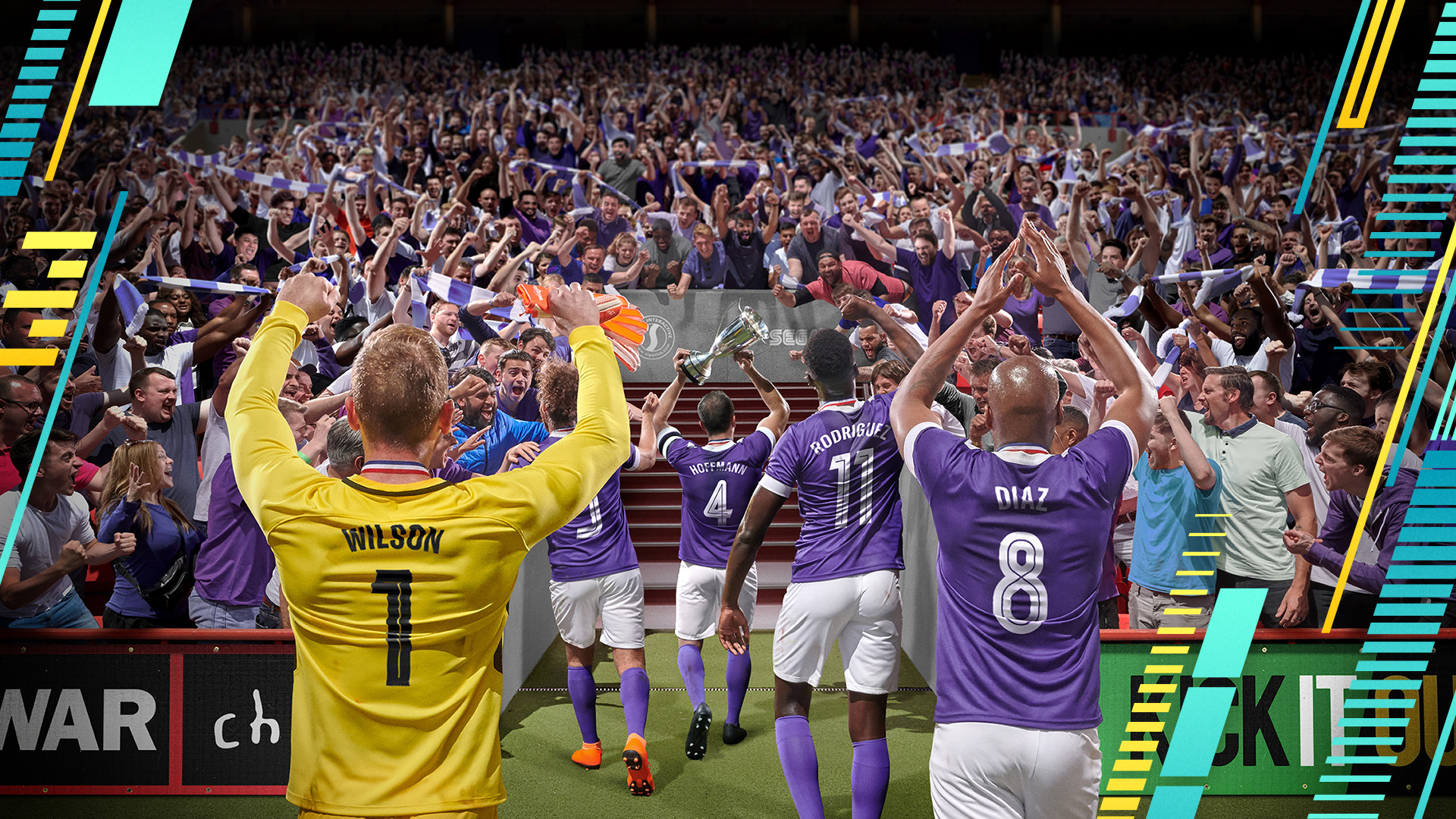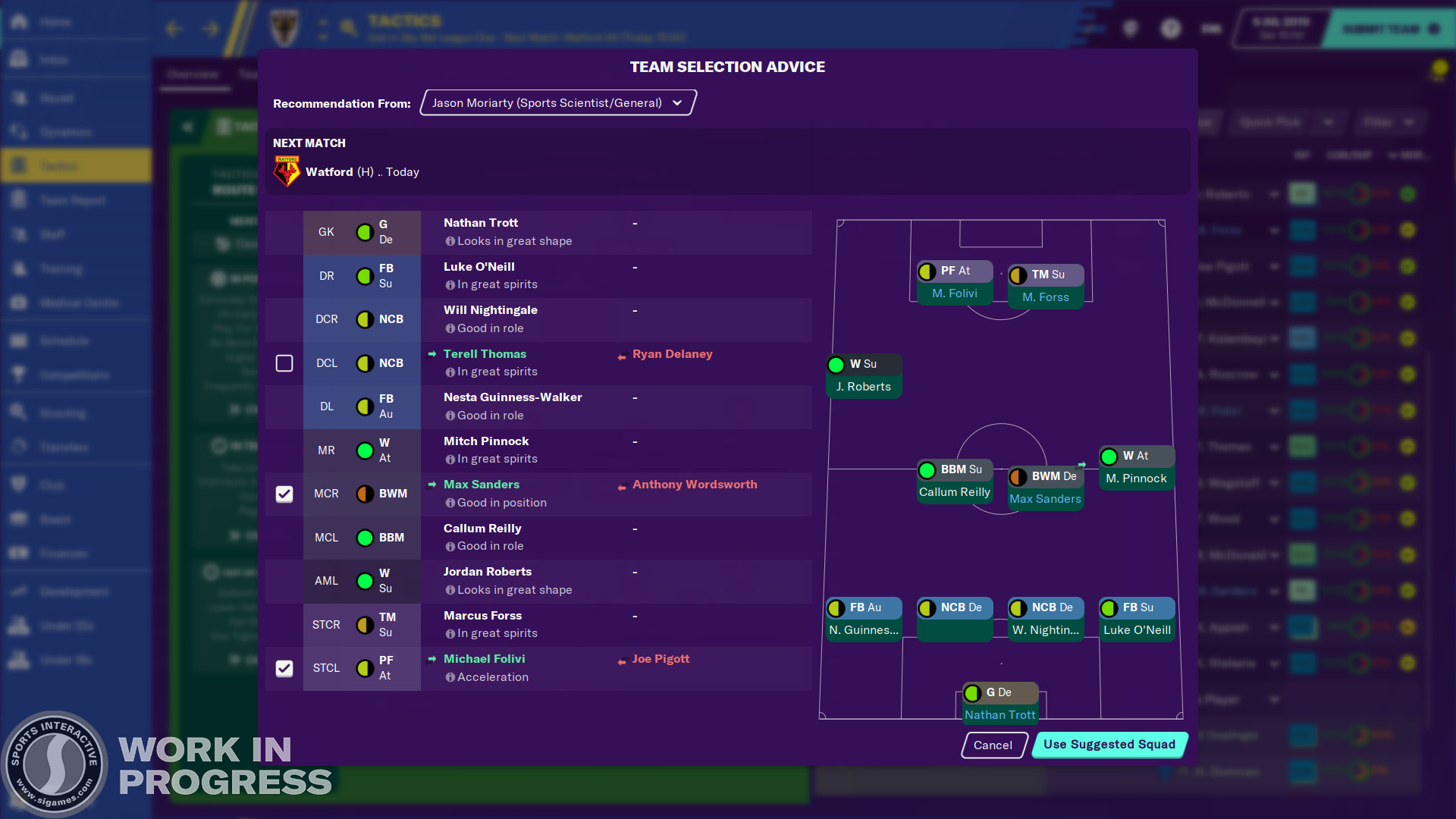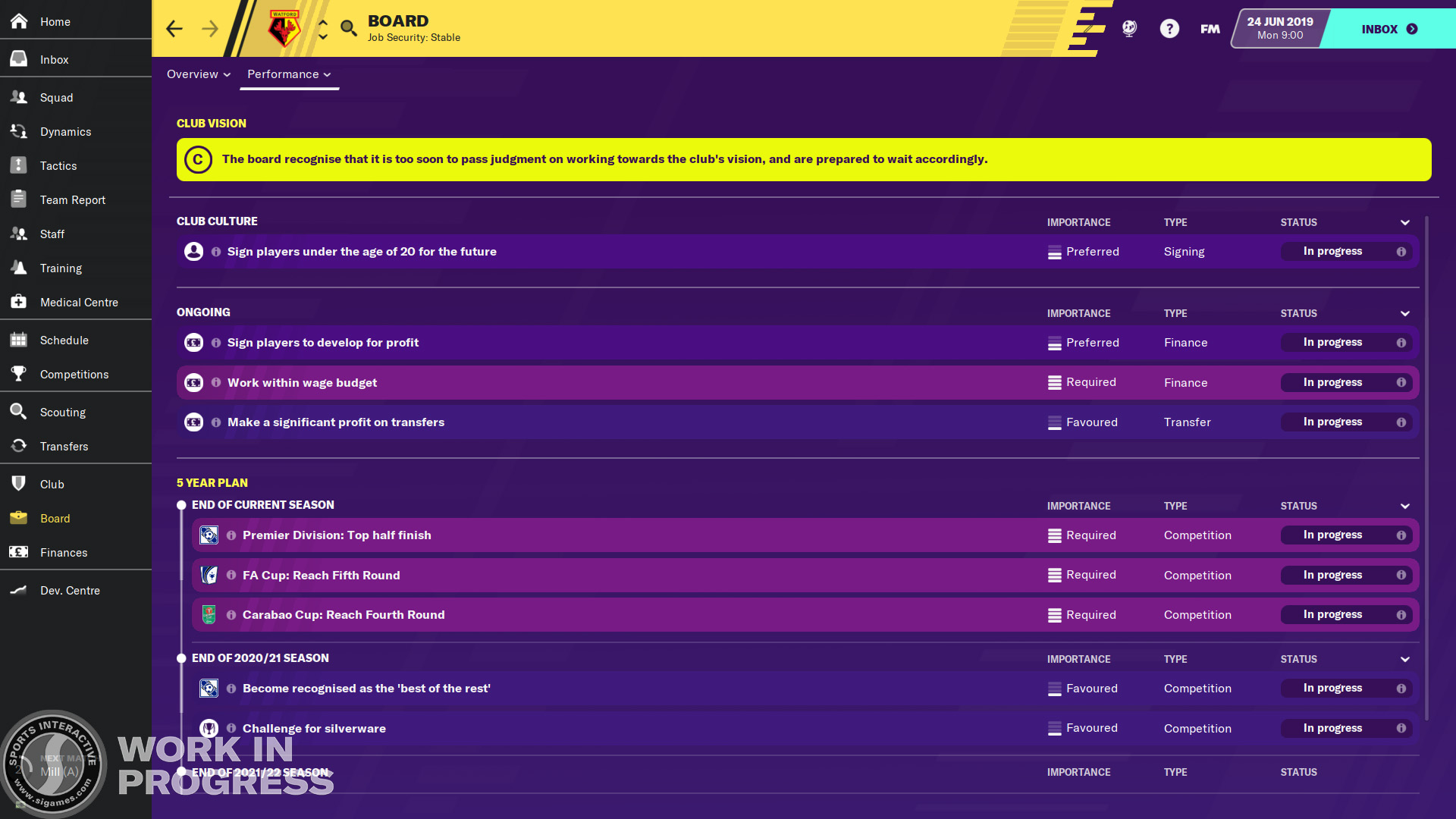Football Manager 2020 is designed to reward long-term play
We talk to SI about new features, and rewarding hobbyist players.

This year’s version of Football Manager appears tailor-made for the players who invest hundreds, if not thousands of hours into the series each and every year. The majority of new headline features are centred around enhancing variety and authenticity over the long-term, with the likes of new multi-year objectives forcing you to rethink the way in which you embark on your managerial career. The result is a game that, in theory, will only reveal its true potential as the seasons wear on.
“People spent a lot of time playing [last year’s] game—our average playtime is 250 hours,” Miles Jacobson, Studio Director at Sports Interactive tells me. “There’s lots of stuff [in FM 20] for the people who are just going to dip in anyway, but I think it’s worth rewarding people who spend their whole year playing the game—it’s worth rewarding the people who see the game as a hobby.”
The biggest new feature relating to long-term play is Club Vision, which sees you and the board curating a five-year plan for you to adhere to. Their judgement isn’t solely related to how you perform on the pitch, but also how you manage areas such as youth development and transfer policies. Importantly, these requirements are unique to each team, meaning that unlike in previous years, you can’t simply expect to transition from club-to-club and adopt a near-identical approach to club management.
In my four hours with the game, I wasn’t properly able to sample the true impact of Club Vision across multiple seasons. That said, it still served as a measuring stick throughout my twenty-or-so matches in Football Manager 2020, prior to which the board suggested I should be reaching the EFL League Two playoffs with Walsall, and then transforming them into a steady League One club over the next three years. The full effect of Club Vision will be unleashed as these seasons progress, with the possibility of your initial five-year plan deviating based on your performances both on and off the pitch.
“If someone releases a game and they’re expecting to do 200k [sales] and it does a million, they expect their next game to do a million, so expectations change in-game in the same way they do in real life,” notes Miles. “Sometimes the visions can seem slightly contradictory in that, an owner might want you to be buying players to sell them on for profit, but also want you to get promoted at the same time. If you get promoted, they might no longer want you to buy the players to sell them on, but they’re not going to tell you that at the starting point.”
Another of FM 20’s major new features is the Development Centre, which serves as an all-encompassing hub for youth players. It’s filled with information about how those players are developing, such as their prospects for attaining a first-team spot, as well as detailed reports on any players you might have sent out on loan. Essentially, it works to prevent high potential talents from getting lost in the shuffle, and acts as a useful outlet for identifying wonderkids more efficiently than in years past.

“You can learn a lot about your players’ personalities through the Dev Centre by how they’re improving. Some of them will become better just from training alone and playing youth matches. Some of them actually need to go out there and be playing first team football at other clubs,” explains Miles. “And it’s not just being able to track it on the Dev Centre, it’s also the advice that you’re getting from your new members of staff and your coaches about those players.”
The biggest gaming news, reviews and hardware deals
Keep up to date with the most important stories and the best deals, as picked by the PC Gamer team.
As usual, an array of quality-of-life improvements are dotted throughout this year’s game as well, including redesigned UI elements and tweaks to various areas of team management. In my brief time with the game, one of the most useful new features was the ability to receive detailed matchday selection advice, especially when experimenting with pre-season games, with players suggested based on various factors including fitness and morale.
The match engine itself boasts a slightly higher degree of detail this year due to graphically enhanced player and manager models. The version I played still harboured a few defensive AI bloopers—something I’d been briefed to expect with the Alpha version—but also conjured up some intelligent manoeuvres in the final third, as well as some impressive highlight-reel style saves from goalkeepers.

“There are some incredible off-the-ball runs, and they’ve caused all kinds of problems with defensive play because we’ve made all of these attacking changes… it’s a lovely problem to have that the attacking play is so beautiful that the defenders can’t cope,” admits Miles. “One of the things that we’re working on really hard at the moment, and have been for the last few weeks, is actually improving defensive anticipation, so for people who have seen footage of the Alpha, you will see big differences between the Alpha and the Beta match engine.”
Naturally, I only scratched the surface of what Football Manager 2020 has to offer during my limited time with the game. And this year, more than ever, it feels as though the true test will come through multiple seasons of play. In particular, Club Vision boasts the potential of affecting the entire structure of the game, increasing both the challenge and realism of club management. And ultimately, assuming it performs as advertised, it should prove a game changing new feature for those who fully immerse themselves in the world of Football Manager for the long haul.

